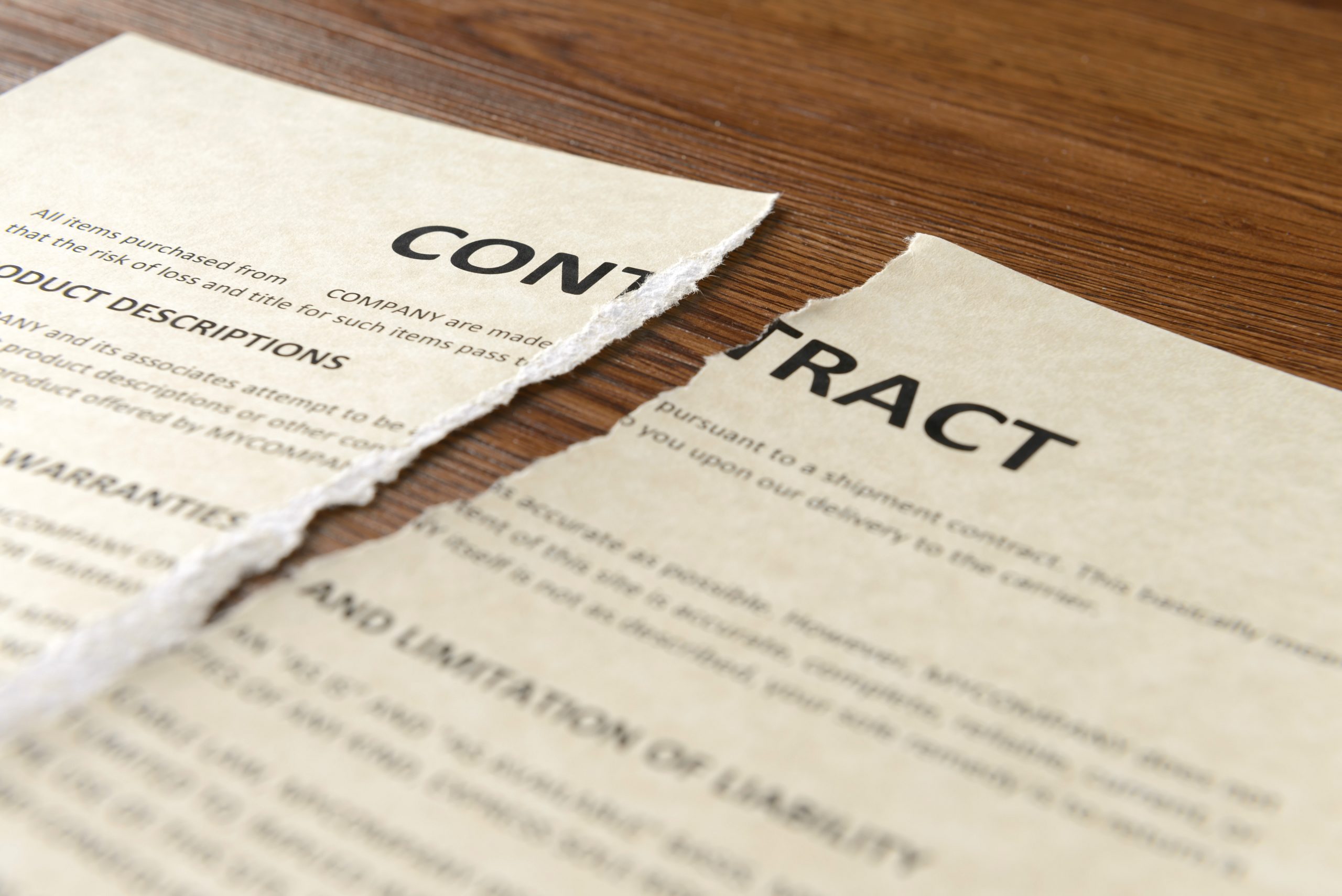
What Constitutes Breach of Contract?

Contracts are legally binding agreements, and, as such, violating their terms can lead to serious repercussions. But they’re often long and written in complex legal terminology that can be almost impenetrable to the layperson, leading to genuine confusion about their terms and conditions. You may be left wondering what exactly constitutes a breach of contract, and what happens when a contract has been breached?
At Mullen Holland & Cooper P.A., we want to help answer those questions, by breaking down what constitutes a breach of contract, and what forms a breach of contract may take. That way, you know what to avoid, and know when your rights may have been violated.
If you need additional help understanding legally binding contracts, contact the team of Gastonia business lawyers at Mullen Holland & Cooper P.A. today. We’re happy to answer your questions during a free initial consultation.
What Constitutes a Breach of Contract?
At its simplest, a contract is a document that details promises and expectations made between multiple parties. Failing to uphold these conditions or expectations may result in a breach of contract. There are different ways the terms of a contract may be violated, and the consequences for breaching a contract may vary depending on the type of breach that has been committed. The types of contract breaches are as follows:
Minor Breach of Contract – A minor breach of contract occurs when one party violates a portion of the contract but does not breach the entire contract. For this reason, a minor breach is also sometimes referred to as a partial breach. An example of a partial breach is when a company delivers what is promised on time, but does not fulfill its obligation to provide a uniform product or service.
Material Breach of Contract – A material breach occurs when one of the parties fails to live up to the specific terms of the contract, causing the other party to receive something materially different from what is spelled out in the terms of the contract. Material breaches happen when one party completely fails to perform the duties that have been outlined in the contract as a whole. In most cases, a material breach absolves the other party from having to adhere to the terms of the contract.
Anticipatory Breach of Contract – This form of contract violation happens when a breach has yet to occur, but one party has indicated that it cannot or will not be able to fulfill its contractual obligations.
Actual Breach of Contract – An actual breach is just that, a breach that has already occurred. This type of breach happens when one party refuses to fulfill the contract as laid out, or misses a deadline or due date. An actual breach may also occur if one party fulfills its duties incorrectly or incompletely.
What the Courts Look For
In general, the courts will review a situation and try to determine the answer to the following questions:
- Does a legal contract exist?
- Was the contract ever modified or updated?
- What did the contract require from each party?
- Did a breach of contract occur?
- What type of breach occurred?
- Why did the breach occur?
- Did the breach cause damages to the other party?
The answers to these questions can determine the consequences of breaching the contract. A party may be responsible for compensatory damages, punitive damages, or restitution. The severity of the consequences may also depend on the seriousness of the breach and how much damage it may have caused.
Contact Mullen Holland & Cooper P.A. Today
Contracts are serious business. If you’re concerned about protecting yourself, your assets, or your business, talk to an experienced attorney about your situation today.
At Mullen Holland & Cooper P.A., we are a versatile team of North Carolina business attorneys with unique skill sets and a passion for serving our clients. If you have contract-related questions, contact us today. For a free initial consultation.






